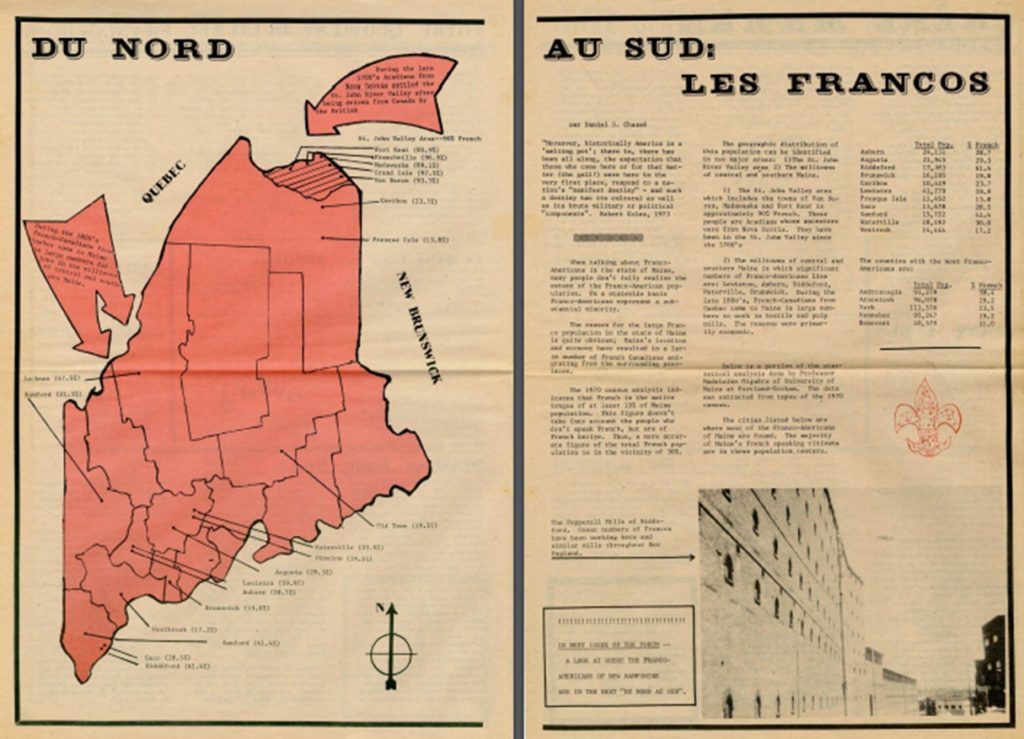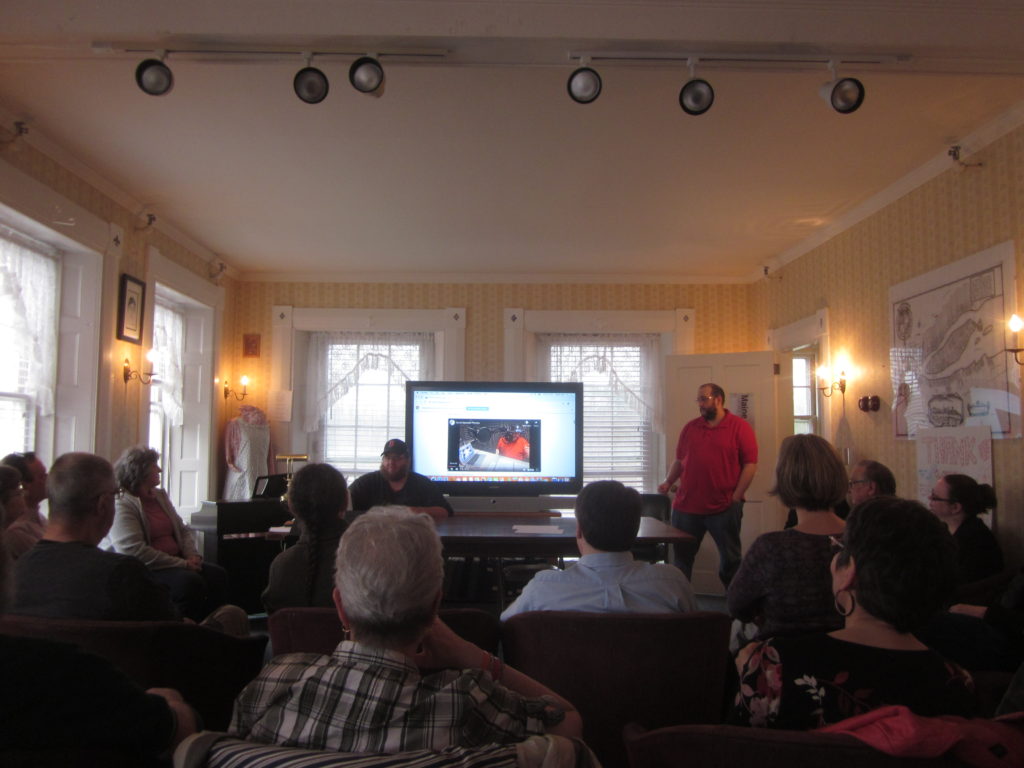Please visit this earlier post for an introduction to the Franco-American Centre’s annual Rassemblement.
As the Rassemblement moved past academic history—and well past the First World War—on April 26 and 27, we had the opportunity to ponder the theme of this edition. Artist and performer Abby Paige had proposed the “Ship of Culture” as a theme and invited us to consider the ship of Theseus, the mythical founder of Athens. When Theseus returned to Athens, his ship was long kept in the harbor and it began to fall apart. Little by little, over time, the Athenians replaced its every part and piece with new materials, leading some to ask whether this was still the same ship Theseus had sailed in or a new one. Applying the story to the last hundred years of Franco-American history, attendees recurrently returned to the question of cultural legacy and change—how much has been preserved, how much lost.
I was especially absorbed by the presentations of Keith Chevalier and Raymond Pelletier, who touched on the matter of physical and human artifacts in the telling of Franco-American history. Chevalier, an archivist at St. Anselm College, discussed the challenges of preservation in the transition from physical records to microfilm to digitization. He brought to our attention a severely, irreparably redacted diary to exemplify the purposeful silences in the archives. (Robert Perreault provided an interesting footnote to the diary’s story the following day.) Pelletier, a professor emeritus at the University of Maine, shared his own Franco story, from humble origins in Berlin, New Hampshire, to a successful career in French education—after bucking French-language pedagogies long at odds with the lived experience of Franco-Americans.

A rich discussion ensued, with many Franco-Americans in the room sharing their view of the past, of their identity, and of their relationship to one another. To Quebec-born Yvon Labbé, long a leading figure at the Centre, this discussion was nothing new, nor were some of the proposed answers. “We had the same conversations in this very room” in the early 1970s, he explained. But whatever disagreement there might be in the room in 2019, it was nothing as compared to the often heated and sometimes bitter debates of nearly fifty years ago—not merely between young Franco-American activists and the higher powers of the University of Maine, but among Francos.
Labbé proposed his own metaphor—culture as a cage. His emphasis was less on confinement than on the way in which we are products of our formative years. A person might push out the cage’s walls and bars and, every now and then, its roof. But to a great extent they will always be in the cage of their upbringing. Few returned to Labbé’s model, but, from hearing other voices at the Rassemblement, I could see the truth in it. Some individuals might have left Berlin or Lewiston or Manchester, but they understood how much Berlin and the other cities had made them and, in a sense, are still with them.
Along the way, we were treated to creative writing and performances by Joan Vermette, Susan Poulin, Normand Beaupré, and Robert Perreault. Chelsea Ray of UM–Augusta shared her study of Franco-American plays and students of the University of Maine and Université Laval also stepped forward to share their work. Regrettably—travail oblige—I missed the second day’s afternoon and evening presentations, although I trust that they were just as inspiring.

Although my first post on the Rassemblement focused on history and memory, I also want to salute three initiatives showing that all things Franco-American are not relegated to the past:
- Jesse Martineau and Mike Campbell, respectively host and producer of the French-Canadian Legacy Podcast, shared with attendees the tremendous conversations they have had on the past, present, and future of Franco-Americans. Picking up on the Theseus analogy, Jesse likely spoke for the entire group in explaining, “I have no idea whether it’s the same ship, but it’s still a cool ship and we want to bring others on board and check it out.” As he has stated before, he does not see the culture as dying, but as different, and the podcast is an eloquent testimony to that idea.
- Jessamine Irwin, a former University of Maine student now teaching at New York University, shared her experience as guide and leader of an alternative spring break. Self-selecting students from NYU have participated in a cultural enrichment program that have taken them through francophone New England to Quebec City. They have had the opportunity to meet people who grew up with the French language and French-Canadian culture in the United States, but also recent French-speaking immigrants who have come from other countries and continents. Jessamine is currently developing a documentary film on the Francos of Maine with Natalie Baird.
- The first issue of Résonance, a literary journal dedicated specifically to Franco-American culture, appeared earlier this year and the Rassemblement provided an opportunity to cheer its launch. The journal is under the editorship of poet and library cataloging manager (at Harvard, no less) Steven Riel. It is available online and merits much more than a heavy skim.
Beyond fruitful but less formal discussion, the weekend closed with an homage to Dean Louder, an American-born geographer, writer on Franco-American themes (writ very large), and long-time professor at Université Laval. He passed away almost exactly two years ago, leaving behind a rich output of research, a blog chronicling his explorations of French America, and, for those who knew him, very fond memories as well. I hope his spirit of adventure and discovery continues to offer inspiration—in particular, to discover others and understand them on their own terms.
The Rassemblement was, in my case, one opportunity to do so in some small measure; I hope to find many more.
Leave a Reply